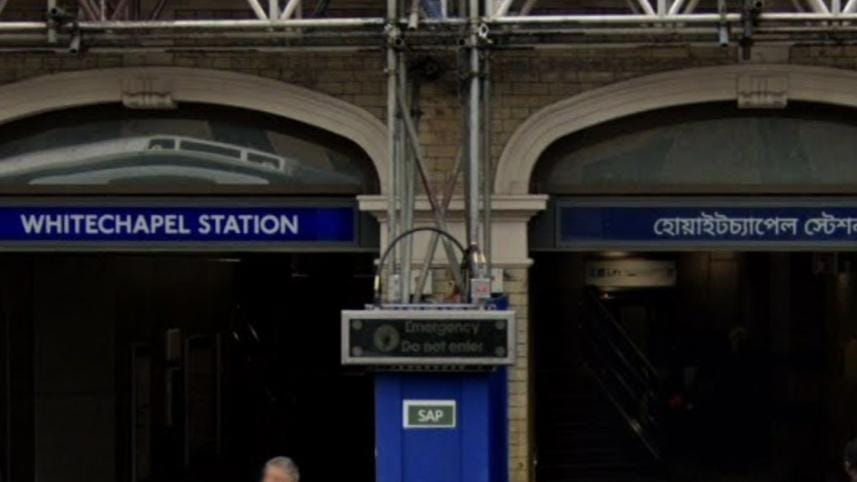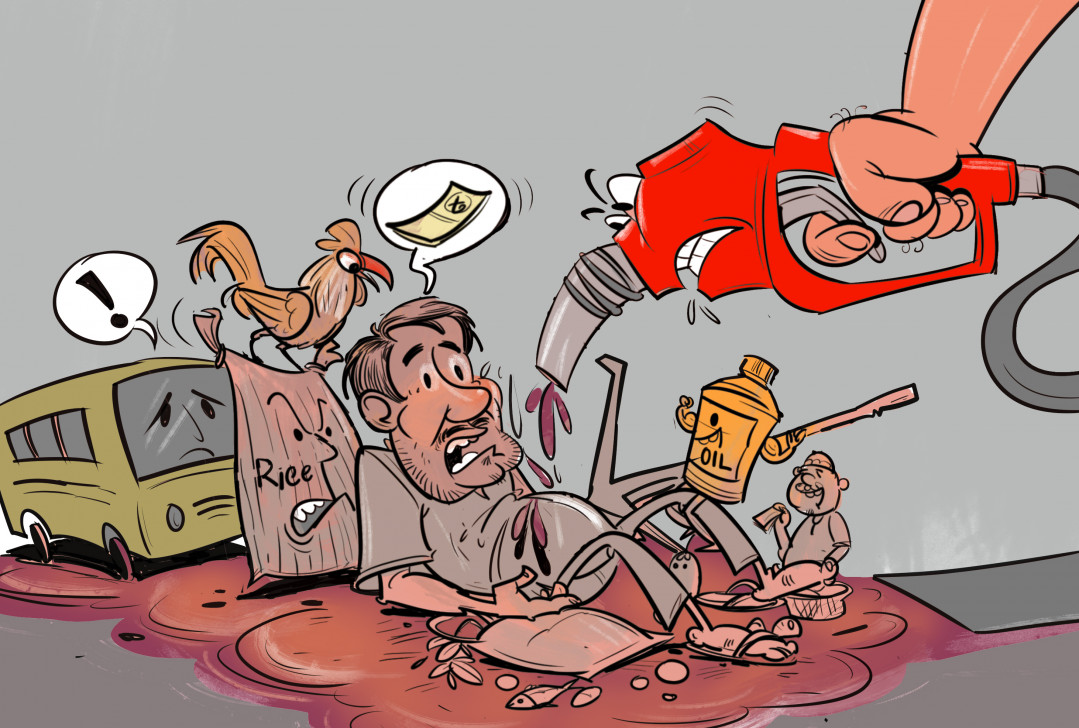Whitechapel, Bengal, and the great British identity crisis

Ah, the British. Inventors of bureaucracy, afternoon tea, and apparently, moral panic over bilingual signs. Whitechapel Underground Station, nestled in the heart of London's East End, had dared to put up in 2022, a Bangla translation of its name—yes, just the name, not the entire London Underground map. After three years, suddenly the country is in "crisis" over it. If you didn't know better, you'd think the Union Jack was being swapped out for a shari.
Rupert Lowe, a British MP whose Google search history likely includes "Why isn't England England anymore?", took to social media in a state of distress. "This is London—the station name should be in English, and English only," he declared, as if a single line of Bangla script had personally threatened the monarchy. And because this world operates on a very specific brand of absurdity, none other than Elon Musk—billionaire, space enthusiast, and now, self-appointed linguistic gatekeeper—chimed in with a simple, "Yes."
At this point, one has to ask: is this really about a tube station sign, or are we witnessing Britain's ongoing existential crisis unfold in real-time? Because, honestly, if the biggest threat to British identity is a few Bangla letters under Whitechapel, then someone should probably remind them about colonialism. You know that tiny historical event where the British spent almost two centuries plastering their language across half the world, including—drumroll, please—Bengal.
Let's get something straight: Whitechapel isn't exactly the last stronghold of old-school Britishness. This is a neighbourhood where samosas outnumber scones, where the air smells like kebabs rather than Yorkshire pudding, and where shop signs in Sylheti and Arabic have existed long before Rupert Lowe discovered Twitter. The Bangladeshi community has been here for decades, working, building, and feeding a city that often pretends they don't exist—except, of course, when it's time to take credit for a good curry.
But sure, let's panic over a sign. Let's pretend this is about "preserving tradition" and not about deeply ingrained xenophobia dressed up as concern for public order. Let's act as if London hasn't always been a city of immigrants, that English itself hasn't absorbed half its vocabulary from foreign languages (bungalow, loot, pyjamas—ring any bells?), and that a second line of text is somehow an existential threat.
From Dhaka, this entire debate feels hilariously ironic. The British, who once forced English upon their colonies with missionary zeal, are now losing their minds over the appearance of another language on their land. Colonialism, meet karma.
Meanwhile, across the border, West Bengal's Mamata Banerjee is overjoyed. She called the Bangla signage a moment of "global recognition." Lovely sentiment, Mamata-di, but let's not pretend that the British woke up one day and thought, "You know what we need? More Bangla!" No, this was the work of the Tower Hamlets council, home to the largest Bangladeshi community in the UK, trying to reflect the people who actually live and work there.
But back to the outrage brigade. If Lowe and Musk are really looking for something to be upset about, I have suggestions. The UK has a cost-of-living crisis, a National Health Service (NHS) on life support, and a housing market so dire that most Londoners consider running away to the Bangladeshi countryside as a viable retirement plan. But no, let's all clutch our pearls over some letters on a tube sign.
For those concerned about a slippery slope where London becomes unrecognisable, let me reassure you: no one is coming for Buckingham Palace with a Bangla dictionary. No one is translating "God Save the King" in Bangla and demanding a redo. And I promise, you won't wake up one day and find your fish and chips labeled "machh ar chips."
At the end of the day, this isn't about a sign. It's about an old empire grappling with its new reality. The British once reshaped the world in their image, and now, as the world leaves its imprint on Britain, some are struggling to cope.
So, here's a suggestion, dear England: take a deep breath, have a cup of tea, and move on. Or, if you're really committed to linguistic purity, start by renaming Whitechapel itself—it was never exactly a British name to begin with.
Barrister Noshin Nawal is an activist, feminist, and a columnist for The Daily Star. She can be reached at: nawalnoshin1@gmail.com.
Views expressed in this article are the author's own.
Follow The Daily Star Opinion on Facebook for the latest opinions, commentaries and analyses by experts and professionals. To contribute your article or letter to The Daily Star Opinion, see our guidelines for submission.




 For all latest news, follow The Daily Star's Google News channel.
For all latest news, follow The Daily Star's Google News channel. 

Comments